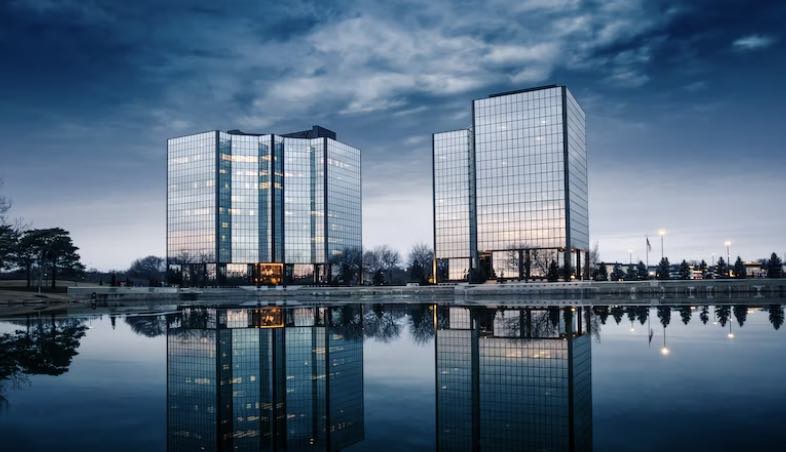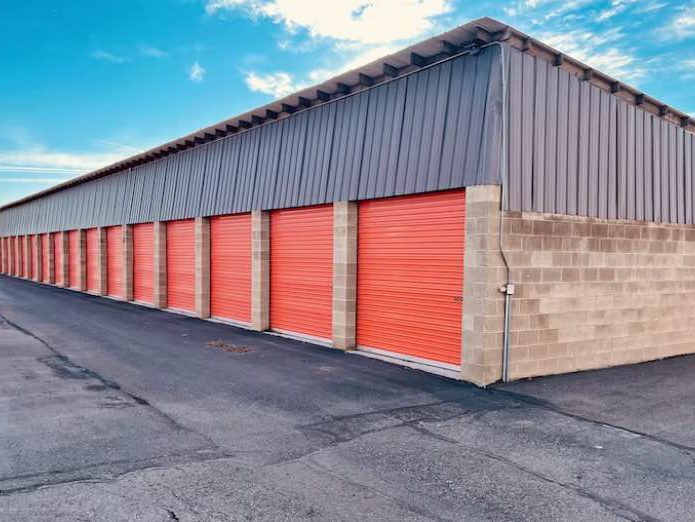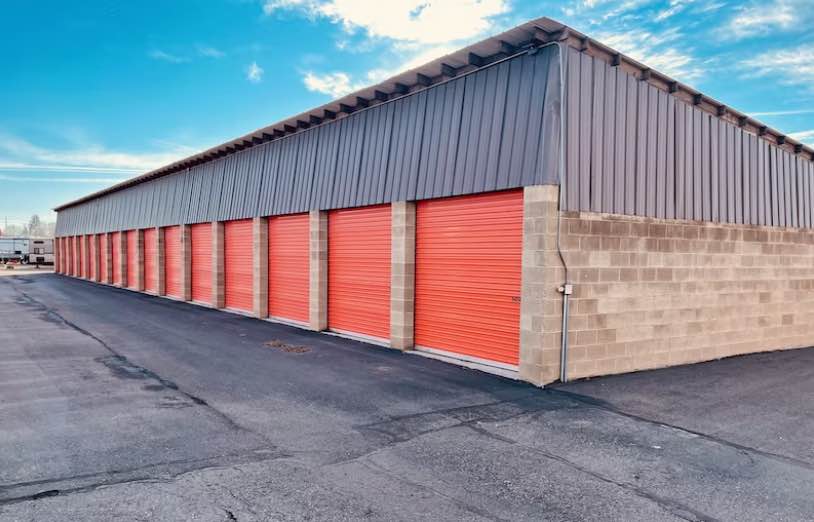Kansas City, straddling the state lines of Kansas and Missouri, is an appealing location for real estate investors. With a diverse housing market, affordable neighborhoods, and a growing population, it offers numerous opportunities for investment. This comprehensive guide provides helpful guidance for anyone interested in adding commercial real estate to their investment portfolio.
Join our Kansas City Investment Newsletter and Stay Up to Date on All the Kansas City Real Estate Property Opportunities
Current Investment Opportunities
In the vibrant real estate market of Kansas City, we’ve honed in on ten residential investment opportunities that stand out as our current favorites. These properties offer a compelling blend of location, value, and future growth potential, making them excellent choices for investors looking to capitalize on the city’s thriving housing market.
From single-family homes in burgeoning neighborhoods to multi-unit properties with strong rental income potential, these investment opportunities represent the best residential offerings in Kansas City right now.
Why Invest in Kansas City Real Estate?
With a median home value that’s nearly half the national average, Kansas City offers affordability that attracts many real estate investors. It’s also home to several thriving industries, which means a stable job market and a steady stream of potential tenants.
The Kansas City metropolitan area, including downtown Kansas City and the Kansas City metro area, is witnessing a surge in development. This growth creates a favorable environment for an investment property.

Understanding The Types of Real Estate Investing
Real estate investing comes in many forms, each with its unique benefits and challenges. `
Rental Properties
Investing in rental properties in Kansas City can provide a steady income stream. This city has a high percentage of renters, making it a promising market for rental property investment. However, being a landlord comes with responsibilities like property management and maintenance costs.
Fix and Flip
This involves buying a property, renovating it, and selling it for a profit. It can provide quick returns but requires a significant upfront investment and carries more risk.
Real Estate Investment Trusts (REITs)
REITs allow investors to invest in large-scale properties like malls or office buildings. It’s a way to invest in real estate without having to manage a property. However, it also lacks the control that direct ownership provides.

Industrial vs. Commercial vs. Residential Properties
Investors must understand the differences between these types of properties.
Industrial Properties
These include warehouses, distribution centers, and manufacturing facilities. They offer long-term leases, stable cash flow, and lower maintenance costs but require a higher initial investment. Some examples that are common with industrial properties are the following.
- Warehouses: These buildings are typically used for storage and distribution of goods. Due to the rise of e-commerce, the demand for warehouse space has increased significantly.
- Distribution Centers: These facilities serve as a hub for product distribution, ensuring goods move efficiently from the manufacturer to the consumer.
- Manufacturing Facilities: These properties are where goods are produced or assembled. They require a significant upfront investment but can provide stable returns.
- Data Centers: With the increasing reliance on digital technology, data centers serve as storage and processing hubs for large amounts of information.
- Cold Storage Facilities: These are used for storing perishable goods at specific temperatures, serving industries like food, pharmaceuticals, and chemicals.
- Flex Industrial Spaces: These properties combine warehouse and office space, offering versatility for businesses that need both.
- Research and Development Facilities: These properties are designed to house activities related to research, product development, and innovation.

Commercial Properties
Commercial properties include retail spaces, office buildings, and hotels. They can provide high returns, but vacancies and market fluctuations can affect income.
Here are some common types of commercial real estate investments.
- Retail Buildings: These can range from single-tenant properties, like a standalone store, to large shopping malls. Retail properties can be lucrative investments, but success often depends on location and the health of the retail sector.
- Office Buildings: These properties can be a great investment, especially in areas with a strong business sector. Office buildings can be classified as Class A, B, or C, based on factors like location and amenities.
- Hotels: Investing in hotels can be profitable but also risky, as it’s dependent on factors like tourism and economic health. There are different types of hotels to invest in, from small boutique properties to large luxury resorts.
- Multi-Family Housing: This includes apartment buildings and condominium complexes. These properties can provide a steady income stream and are often less susceptible to economic fluctuations than other types of commercial real estate.
- Mixed-Use Buildings: These properties combine residential, commercial, and sometimes industrial spaces. Mixed-use buildings are becoming increasingly popular in urban areas and can offer investors a diverse income stream.
- Restaurants/Bars: These can be risky investments due to the competitive nature of the food industry, but successful restaurants and bars can also be highly profitable.
- Medical Centers: These properties, which include hospitals, doctor’s offices, and outpatient clinics, can be a stable investment, as healthcare is an essential service.
- Special Purpose Properties: These include unique types of commercial property like car washes, self-storage facilities, and bowling alleys. The success of these investments often depends on specific market demand.

Residential Properties
Residential properties include single-family homes, duplexes, and apartments. They offer a steady stream of rental income and potential for appreciation but require more hands-on management.
- Single-Family Homes: These standalone houses are designed to accommodate one family. They offer privacy and are popular among renters with families.
- Multi-Family Homes: These properties consist of multiple separate housing units for residential inhabitants. An example would be a duplex or a triplex.
- Condominiums: These are individually owned units within a larger building or community. The owners share common areas, such as swimming pools, fitness centers, and parking lots.
- Townhouses: These are multi-floor homes that share one or two walls with adjacent properties but have their own separate entrances.
- Apartments: These are buildings divided into multiple units, each with its own living space, kitchen, and bathroom. They are typically owned by one entity and rented out to tenants.
- Cooperatives (Co-ops): These are similar to condominiums, but instead of owning a specific unit, residents own shares in the entire building and have a lease for their particular unit.
- Mobile Homes: These are prefabricated homes that are transportable and designed to be moved, though they are often placed in one location and left there permanently.
- Vacation Homes: These properties are used for holiday vacations and are not the owner’s primary residence. They can be rented out when not in use to generate additional income.
- Tiny Houses: A recent trend in the housing market, these are small, often mobile homes that prioritize efficient use of space. They are popular among those seeking a minimalist lifestyle or lower living costs.
Finding the Right Property
Finding the right property in Kansas City is crucial for successful real estate investing. Location is a critical factor in real estate investment. Look for properties in desirable locations, with good schools, low crime rates, and access to amenities like shopping and public transportation.
Features Investors Seek in a Location
When considering property investment in Kansas City or elsewhere, there are several key features of a location that investors often seek. These include:
- Economic Stability: Areas with robust local economies often have strong rental markets. Look for indicators like job growth, low unemployment rates, and a diverse range of industries.
- Population Growth: Locations with a growing population can indicate demand for rental properties and potential appreciation.
- Proximity to Amenities: Properties near amenities like shopping centers, parks, and restaurants are typically more desirable to renters.
- Quality of Local Schools: In residential real estate, proximity to good schools can significantly impact a property’s value and desirability.
- Public Transportation: Easy access to public transportation can be a draw, particularly in urban areas.
- Low Crime Rate: Safety is a major concern for most tenants, so areas with low crime rates tend to be more attractive for real estate investors.
- Future Development: Upcoming infrastructure or commercial developments can potentially increase the value of nearby properties.
- Market Trends: Real estate markets are dynamic, so understanding current and future trends can help investors make more informed decisions.

Market Trends
Understanding market trends is essential when investing in real estate. Keep an eye on the local economy, population growth, and real estate market trends to make informed decisions.
Investors often focus on following market trends to gauge the health and potential of a real estate market. Some of the key trends that investors pay attention to include.
- Housing Price Trends: Investors monitor fluctuations in housing prices to understand the market’s direction and to identify the best times to buy or sell.
- Rental Yield: The rental yield, which is the rental income as a percentage of the property’s cost, can give a quick snapshot of an investment’s potential.
- Vacancy Rates: A high vacancy rate might indicate a less desirable area, while a low vacancy rate could suggest that demand for rentals outpaces supply.
- Interest Rates: Changes in interest rates can affect an investor’s borrowing costs and the affordability of real estate for potential buyers or renters.
- Inventory Levels: A low inventory may suggest a seller’s market, which could create opportunities for property flipping or selling. Conversely, high inventory might indicate a buyer’s market.
- New Construction: The level of new construction can suggest the market’s future direction. High levels of new construction might suggest confidence in the market, but could also lead to oversupply.
- Employment Rates and Job Opportunities: Rising employment rates and job opportunities in a location can signal a strong local economy, which can drive demand for housing.
- Demographic and Population Shifts: Changes in population and demographics can impact housing demand. For instance, an influx of young professionals might increase demand for city apartments, while an aging population might create opportunities in retirement properties.

Cost and Potential Returns
If you’re financing your investment, consider the cost of borrowing and potential returns. Look for properties with a good return on investment (ROI) and factor in all expenses like taxes, insurance, and maintenance.
When investing in real estate, it’s important to account for all related costs. Here’s a list of common expenses.
- Purchase Price: This is the initial cost of acquiring the property, often the largest expense involved in a real estate investment.
- Mortgage Payments: If you’re financing your investment, you’ll have to make regular payments towards the loan.
- Property Taxes: These are annual taxes levied by the local government, and can vary widely by location.
- Insurance: Property insurance is crucial for protecting your investment from unexpected damages.
- Maintenance and Repairs: Regular upkeep is a must to maintain the property’s value and attract renters. This can include everything from minor repairs to major renovations.
- Property Management: If you choose to hire a property manager, this will be an ongoing cost.
- Utilities: Depending on the lease agreement, landlords may be responsible for paying utilities such as water, electricity, and gas.
- Homeowners Association Fees: If your property is in a community with a Homeowners Association, you’ll need to pay monthly or annual fees.
- Legal and Accounting Fees: These might include costs for legal advice, property inspections, or tax preparation.
- Vacancy Costs: There may be periods when your property isn’t rented out, so you should account for potential lost rental income.
- Marketing Costs: These include costs associated with advertising the property to prospective renters or buyers.

Benefits of Investing in Kansas City Real Estate and Metro Areas
- Affordability: Compared to national averages, real estate in Kansas City and its metro areas is significantly more affordable, making it easier for investors to enter the market.
- Stable Job Market: Kansas City is home to several robust industries, contributing to a stable job market that ensures a steady flow of potential tenants.
- Increasing Development: The Kansas City metropolitan area is experiencing a surge in development, indicating growth and potential increase in property values.
- High Rental Demand: With a growing population and a robust employment rate, the demand for rental properties is high, which can lead to excellent returns for real estate investors.
- Diverse Real Estate Options: From downtown apartments to suburban family homes, Kansas City offers a diverse range of real estate investment opportunities to fit varying investor profiles.
- Strong Renters’ Market: Kansas City has a high percentage of renters relative to homeowners, making it a favorable market for rental property investments.
- Favorable Property Taxes: Kansas City’s property taxes are comparatively lower than in many other major US cities, increasing the potential profitability for investors.
- Future Potential: Kansas City’s ongoing developments and growing economy point to a promising future, making it an attractive location for long-term investment.

How to Invest in Kansas City Real Estate. Check out These Opportunities.
Having a team of real estate professionals can significantly enhance your investment success. This team can include a real estate agent who understands the local market, a property manager to handle day-to-day management, and a legal expert to protect your interests. He can help you get a home loan and many other checklist items along the way of obtaining property.
Reasons to Work with Joe Stephenson
- Industry Expertise: Joe Stephenson brings a wealth of experience and knowledge about the real estate market in Kansas City. His understanding of local trends and opportunities can provide invaluable guidance for your investment decisions.
- Professional Network: Over the years, Joe has cultivated a network of industry professionals, including lenders, contractors, and property managers, which can prove beneficial in the investment process.
- Personalized Service: Joe is known for his client-centered approach. He takes the time to understand each client’s unique goals and investment strategies, ensuring that he provides personalized service tailored to individual needs.
- Negotiation Skills: Joe’s excellent negotiation skills can be a great asset when it comes to closing deals. He will work tirelessly to ensure you get the best possible price and terms on your investment.
- Consistent Communication: Joe prides himself on his communication skills, keeping his clients informed every step of the way and ensuring a clear understanding of the process.
- Track Record of Success: Joe’s impressive portfolio of successful transactions attests to his capability and commitment to achieving positive outcomes for his clients.
- Ethics and Integrity: Joe operates with the utmost professionalism, demonstrating a high level of ethics and integrity in his dealings. You can trust him to represent your interests faithfully and transparently.
- Long-Term Support: Beyond the initial transaction, Joe is committed to providing ongoing support and advice to help maximize your real estate investment’s long-term success.

Conducting Thorough Research
Before you start investing, it’s crucial to conduct thorough research. Understand the Kansas City housing market, study different neighborhoods, and determine the potential return on investment properties. Joe can provide valuable resources and insights to help you make informed decisions.
Final Thoughts on an Investment Property in the KC Area
Investing in Kansas City real estate can be a profitable venture with the right approach. Whether you’re interested in rental property, flipping houses, or REITs, Kansas City offers opportunities for all types of real estate investors.
With affordable neighborhoods, a growing population, and a vibrant downtown area, it’s a market worth considering for your investment portfolio. If you are interested in becoming a real estate investor in the Kansas City area, please reach out to Joe Stephenson.



